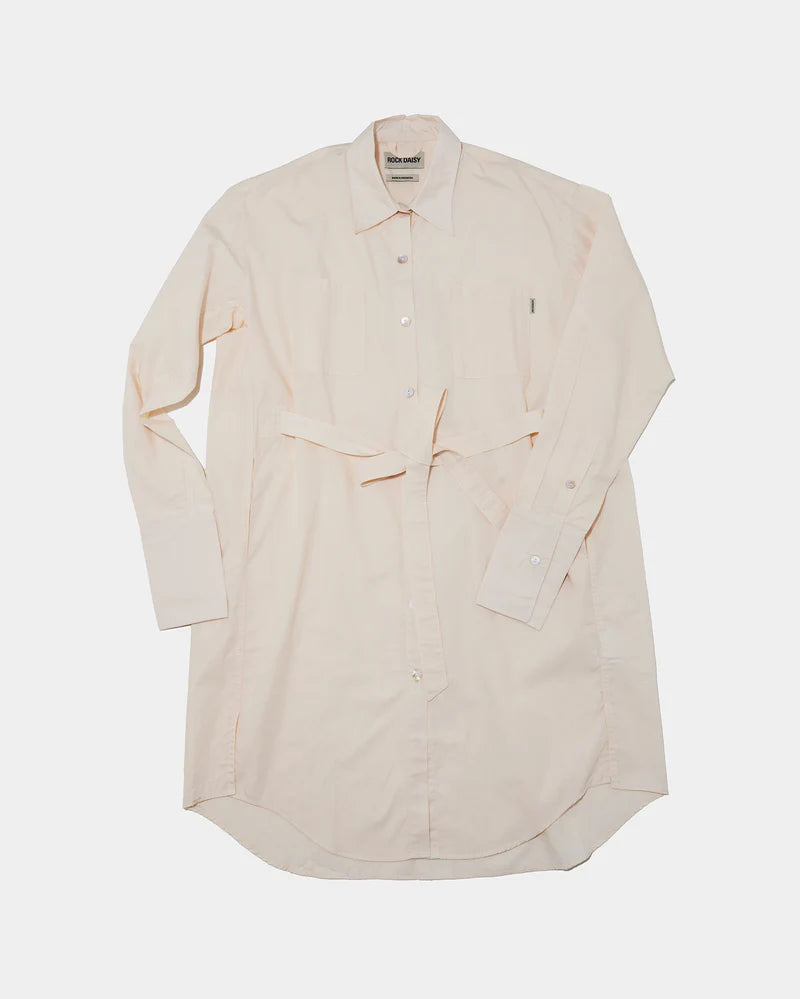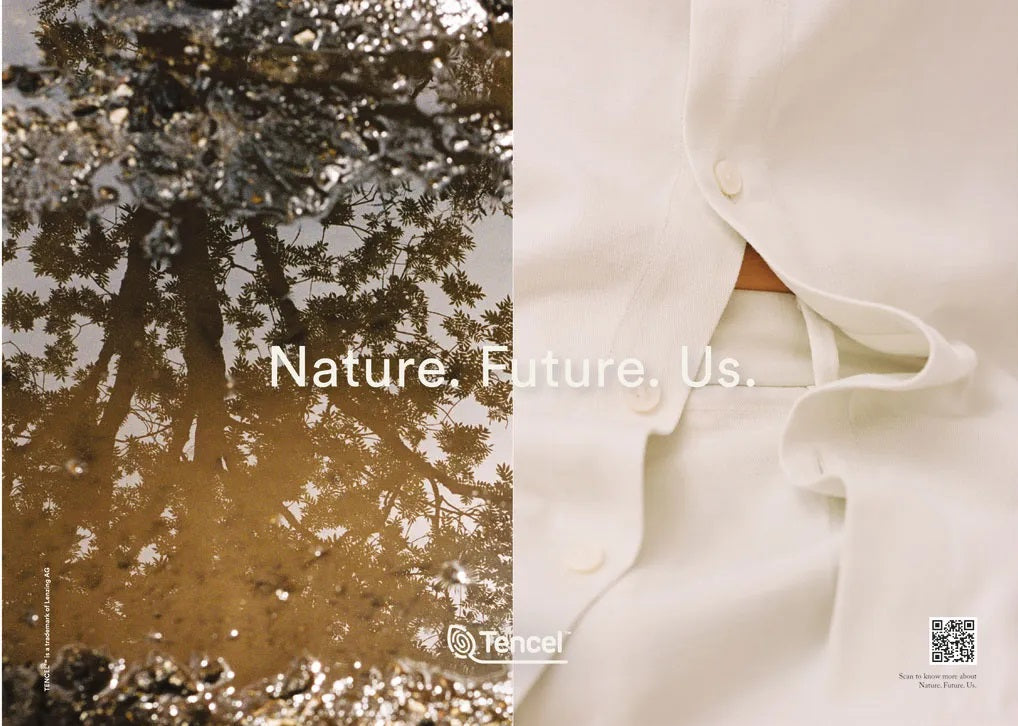
Sustainable Fashion in Singapore: The Ethical Way Forward
According to the UN Environmental Programme, the fashion industry is responsible for at least eight percent of global carbon emissions, posing a serious threat to global ethics and sustainability. So how can we help in reducing the impact of this environmentally polluting industry? One solution is simple: sustainable fashion. In this article, we will talk about how polyester has plagued the world and how changing your wardrobe to a more sustainable fashion in Singapore can make a difference.
From Fossil Fuels to Fabric: The Dirty Truth About Polyester
In 2021, polyethylene terephthalate (PET) made up a staggering 58 percent of the global fibre market. However, the growing demand for more sustainable textiles, coupled with an unpredictable supply chain for petroleum-based materials, is beginning to challenge polyester's reign, with projections showing its market share dipping to 56.36 percent by 2025.
Polyester is one of the most commonly used fabrics worldwide, but its environmental cost is significant. The production process for polyester, which consumes 125 megajoules of energy per kilogram, is highly energy-intensive and contributes heavily to greenhouse gas emissions.
Polyester is derived from petroleum, a fossil fuel that is not only finite but also heavily polluting. According to a report by the Ellen MacArthur Foundation, producing polyester for textiles generates around 1.5 kilograms of carbon dioxide for every kilogram of fabric. This level of emissions is significantly higher compared to natural fibres like cotton or wool.
If the industry continues to grow as predicted, polyester production could consume over 26% of the global carbon budget by 2050, putting the world at greater risk of exceeding the 2-degree pathway that scientists associate with dangerous levels of global warming.
Why Polyester is a Problem for the Planet
Polyester is far more than just a convenient fabric—it's a ticking environmental time bomb. That’s why it’s time for us to switch to more sustainable options.
1. Polyester Production Relies on Fossil Fuels
Since polyester is made from burning fossil fuels into crude oil, releasing CO2 in the atmosphere, its production contributes significantly to our world emission. By switching to natural fibres like organic cotton or hemp, we can reduce our reliance on fossil fuels for textile production.
2. Polyester is Not Biodegradable
Unlike natural fibres, polyester does not break down easily in the environment. It can take hundreds of years for polyester to decompose in landfills, during which it releases microplastics. These microplastics can enter waterways, harming marine life and eventually making their way into the food chain.
3. Polyester Releases Microplastics During Washing
Each time polyester clothing is washed, it sheds tiny plastic fibres, known as microplastics. These fibres are too small to be filtered by wastewater treatment plants, allowing them to end up in rivers, lakes, and oceans. This pollution poses a threat to aquatic ecosystems and can be ingested by marine organisms, impacting their health and survival.
Polyester: A Fossil Fuel Fashion Statement
What makes polyester particularly problematic is that it doesn't just harm the environment at the production stage; it continues to cause damage throughout its lifespan. Unlike natural fibres that break down over time, polyester is essentially plastic, and it doesn’t decompose in a natural environment. This means that every polyester garment discarded in a landfill could remain there for hundreds of years, contributing to the growing problem of plastic pollution.
Even as these garments are worn and washed, they release tiny plastic particles—microplastics—that enter our water systems and eventually, our oceans. Polyester, therefore, represents more than just a fashion choice; it symbolises the deep connection between the textile industry and fossil fuels, posing serious questions about sustainability and the future of fashion.
Sustainable Alternatives to Polyester in Fashion
Thankfully, there are a lot of other sustainable and eco-friendly options for textile production. Some of the best alternatives to polyester include:
Natural Fibres
Natural fibres are the most sustainable option for fashion. They include organic cotton, linen, hemp and silk. These fibres are biodegradable, require less water and chemicals to produce, and break down harmlessly at the end of their life cycle.
Here at Rock Daisy, we use 100% natural fibres for our fabrics. In fact, 90% of our line list has Lenzing TENCEL™ certification, highlighting our commitment to sustainable clothing in Singapore.
Hemp
Hemp is an eco-friendly alternative, especially for denim. Hemp fibres are durable, breathable, and require less water and pesticides than cotton. Hemp also absorbs more carbon from the atmosphere during growth and sequesters it in the soil.
Hemp fibres are also biodegradable, breaking down within 6 to 24 months. This makes hemp a more sustainable choice for long-lasting garments like denim.
Linen
Linen is a natural fibre made from the flax plant. It has natural breathability and moisture-wicking properties, making it a sustainable choice for hot-weather wear.
Another advantage of linen is its ability to become softer and more comfortable with each wash. Unlike synthetic fabrics, linen doesn't shed microplastics when washed, helping to keep our waterways clean. Its natural texture and drape provide a timeless, elegant look that suits a range of styles, from casual wear to formal attire.
How to Shop Sustainably: Tips for Ethical Clothing in Singapore
As a consumer, being aware of your options when shopping for fashion can make a difference. Here are some tips for making ethical and sustainable choices:
- Look for natural fibres like organic cotton, linen and hemp. Avoid synthetics like polyester whenever possible.
- Check for certifications like Lenzing TENCEL, GOTS, and Oeko-Tex for sustainable fibres, dyes and manufacturing processes.
- Buy from brands with sustainable practices like using renewable energy, fair trade and reducing water use. Read their social and environmental reports.
- Choose timeless styles and high-quality garments that you'll wear for years, not just seasons. This reduces the need to constantly buy new clothes.
- Wash clothes less frequently and at lower temperatures. Line drying also reduces the energy required for clothes care.
- Donate or repair old garments that are still usable instead of throwing them away. This keeps clothes in circulation for longer.
Ethical fashion can seem daunting, but every conscious choice makes a difference. With awareness and small changes, we can collectively make Singapore's fashion industry more sustainable and socially responsible.
The Bottom Line
The fashion industry's reliance on polyester has a significant environmental impact due to its high carbon emissions, non-biodegradability, and contribution to microplastic pollution. To combat these issues, sustainable fashion offers a solution through the use of natural fibres like organic cotton, hemp, and linen, which require fewer resources and break down more easily.
By supporting ethical practices, choosing high-quality, timeless pieces, and being mindful of consumption, consumers can help reduce the industry's ecological footprint. For a more eco-friendly and ethical fashion industry, choose Rock Daisy. We don't just create craft classic clothing, we drive forward positive change in the fashion industry one eco-friendly collection at a time.



